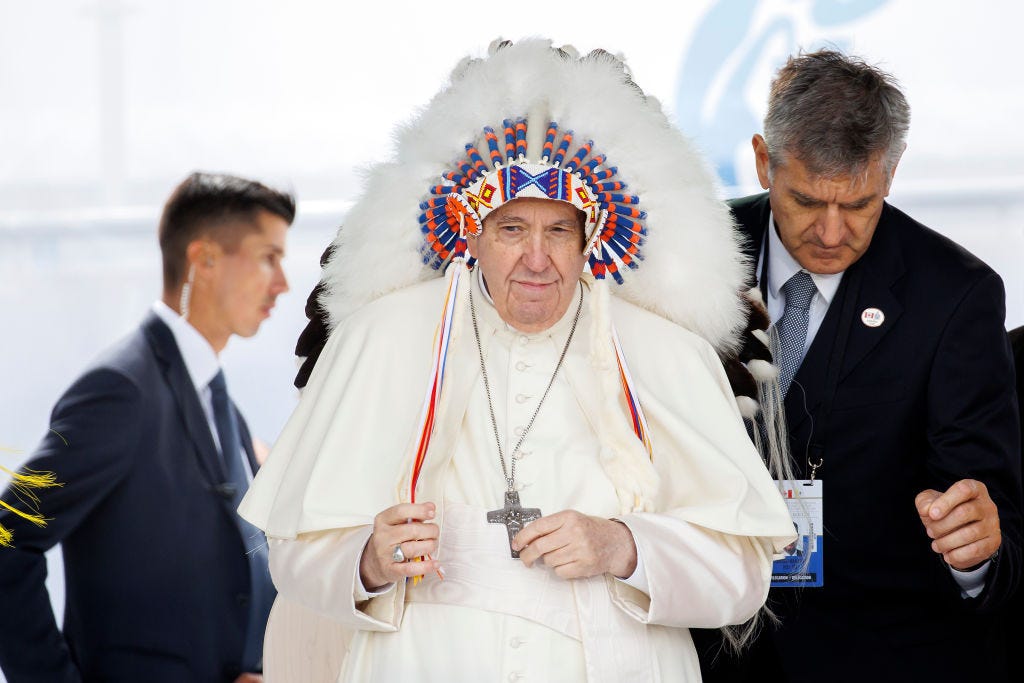The sad, surreal visit of an apologetic pope
Canadian Indigenous peoples face a reckoning after being granted an audience with a major symbol of their oppression.

Keep reading with a 7-day free trial
Subscribe to Indigenous Wire to keep reading this post and get 7 days of free access to the full post archives.

